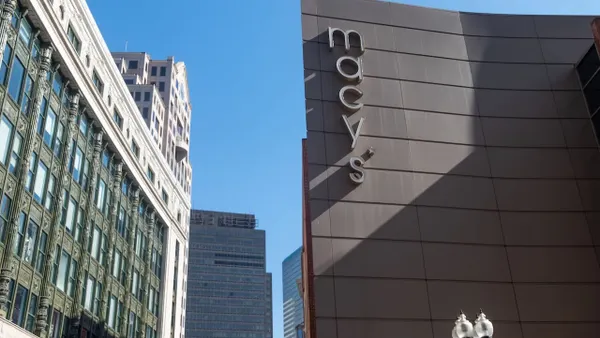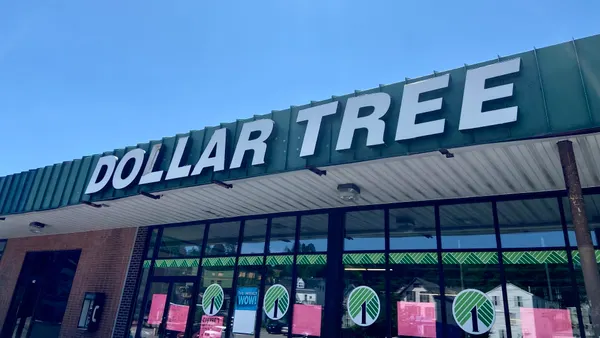Dive Brief:
- Barnes & Noble on Thursday reported that first-quarter net sales declined 6.9% year over year to $795 million as comparable store sales declined 6.1%. The bookseller said that declines in comps improved each month of the quarter, from 7.8% in May to 4.5% by the period's end in July, and they declined 0.8% in August, according to a press release.
- The retailer's net loss widened to $17 million, up about 57% from the year-ago period. Barnes & Noble's operating loss also expanded, even as it cut $22 million in costs, the company said. The company's stock dropped to a six-month low after sales, comps and earnings missed FactSet analyst estimates, according to MarketWatch.
- "We fully realize that cutting expenses does not alone provide a path to the long term viability of any retail business," Barnes & Noble Chairman Len Riggio said in a statement. "Therefore, our short and long term focus is to grow our top line, and, by doing so, provide us the cash flow needed to grow our business."
Dive Insight:
Barnes & Noble's previously announced "aggressive turnaround" clearly has not taken hold. And while the retailer has cut costs, it's still grappling with a declining sales base.
Not helping things is a vacancy in the top executive spot, after the retailer ousted former CEO Demos Parneros over what were, at first, vague references by the company to "violations of the company's policies." After Parneros sued Barnes & Noble for defamation and breach of contract related to his firing, the retailer was more specific — and more aggressive — in explaining the termination.
The company said in response that Parneros' suit was "nothing but an attempt to extort money from the company by a CEO who was terminated for sexual harassment, bullying behavior and other violations of company policies after being in the role for approximately one year."
Parneros' suit, along with denying the company's allegations against him, paints a picture of a "financially troubled business" led by, in Riggio, a "volatile founder who refuses to relinquish control and thus impedes B&N management's ability to effect meaningful change." Parneros' complaint also references a buyer for the company in a fellow book retailer that was not named. Barnes & Noble agreed to the sale earlier this year, but the buyer withdrew in June after conducting due diligence, according to Parneros.
On a conference call Thursday, Riggio reiterated the company's response to the lawsuit and described some of the complaints' allegations as "outrageous lies and personal attacks against me" as well as the company's board and management. The accuracy of Parneros' allegations may well be fought out in court. Regardless, Barnes & Noble has certainly struggled with executive turnover as its fortunes have wobbled. Parneros was the fifth CEO to serve in as many years. That creates a major challenge as the retailer tries to reinvent its business and compete with Amazon.
To that end, Barnes & Noble earlier this year said it was working to return to its roots as a bookseller, abandoning a short-lived emphasis on super-trendy music and coloring books. The company also brought in Timothy Mantel, former GNC merchandising chief, as chief merchandising officer.
Broadly, the company has been trying to improve its curation and assortment, reviewing its real estate, cutting costs and boosting its omnichannel services, including ship from store. Earlier this year, Parneros, who launched what he called the "aggressive" turnaround strategy, said the company was looking to shrink its stores, with 14,000 square feet emerging as the ideal target size and the first of the smaller stores planned for the fall.














